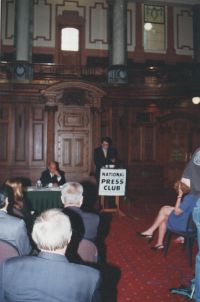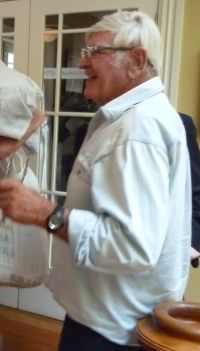Items filtered by date: March 2018
Philippines is Multi Cultural, Diverse, Polynesian, Points Out Ambassador Gary Domingo

Philippines is Multi Cultural, Diverse, Polynesian, Points Out Ambassador Gary Domingo
An intense and often exclusive focus on the economies of north Asia dazzled and often blinded New Zealand to a clear view of the rather more accessible value of the Philippines, the country’s ambassador Jesus Domingo told the National Press Club in Wellington.
He observed a similarity between New Zealand and the Philippines in that both nations were obscured by more powerful neighbours.
Australia in New Zealand’s case and China for the Philippines
In New Zealand’s case this was Australia. In the Philippines instance it was the industrial powerhouses of north Asia, notably China.
Mr Domingo was speaking on the topic of “New Zealand’s Asia Opportunity Hiding in Full Sight---The Philippines.”
Mr Domingo, who also represents his country in Oceania, noted the Philippines transition in historical terms in relatively recent times from a Spanish colony to moving under the United States aegis, and then more recently still to independence under the Washington governmental system.
This had made the Philippines far more multicultural, and diverse than was widely perceived, he said.
For example it was not generally understood that the Philippines lay on the northern fringe of the Polynesian migration and settlement.
“We even look like you!” He ventured, reinforcing his people-like-us theme.
The sharing of a number of Polynesian-Maori words was testament to all this he noted.
Mr Domingo touched upon but did not specify the trade and investment links which include for example Philippine ownership of New Zealand food processors Griffins, and also Goodman Fielder.
Neither did he dwell on the New Zealand trade balance with the Philippines which runs at five times in New Zealand’s favour.
Mr Domingo veered diplomatically away from the submerged issue of why in the current free trade frenzy the Philippines featured so rarely, if at all.
He did stress though the Philippines pre-eminence in the export of its people reprising the concept of an empire on which the “sun never set” because Philippine nationals were everywhere; 50,000 in New Zealand.
Noting that a common language, English, and a common religion, Christianity, were powerful elements in enabling Philippine nationals to become productive members of Commonwealth economies, he also stressed his peoples' pre-eminence in caring in roles such as “nannies, and nurses,” as he described them.
Mr Domingo, noting the presence at this same National Press Club event of Singapore High Commissioner Bernard Baker, singled out the island state as a particularly outstanding example of a Commonwealth member in which flourished Philippine nationals in this caring, nurturing sector,
Mr Domingo defined also a willing quality in the Philippine workforce which he described as being one of “meekness” which enabled nationals to take up such a large part of the arduous New Zealand milking shed capability.
Mr Domingo, who prefers to be known as Gary, served as Philippine Consul in Saudi Arabia, and was a member of the Philippine delegations to the United Nations in Geneva and also New York.
Captions
Greg Besa JP Philippine community leader, H.E Jesus Domingo, National Press Club treasurer Bryan Weyburne, National Press Club president Peter Isaac, High Commissioner for Singapore H.E Bernard Baker.
Stalwarts -National Press Club’s Richard Long and Joyce Gibson
Puzzlement -National Press Club event director Rex Kropotkin Benson
Asia traders- Andrew and Melody Criglington
Clubbers- Adrienne and Ian Stewart




















